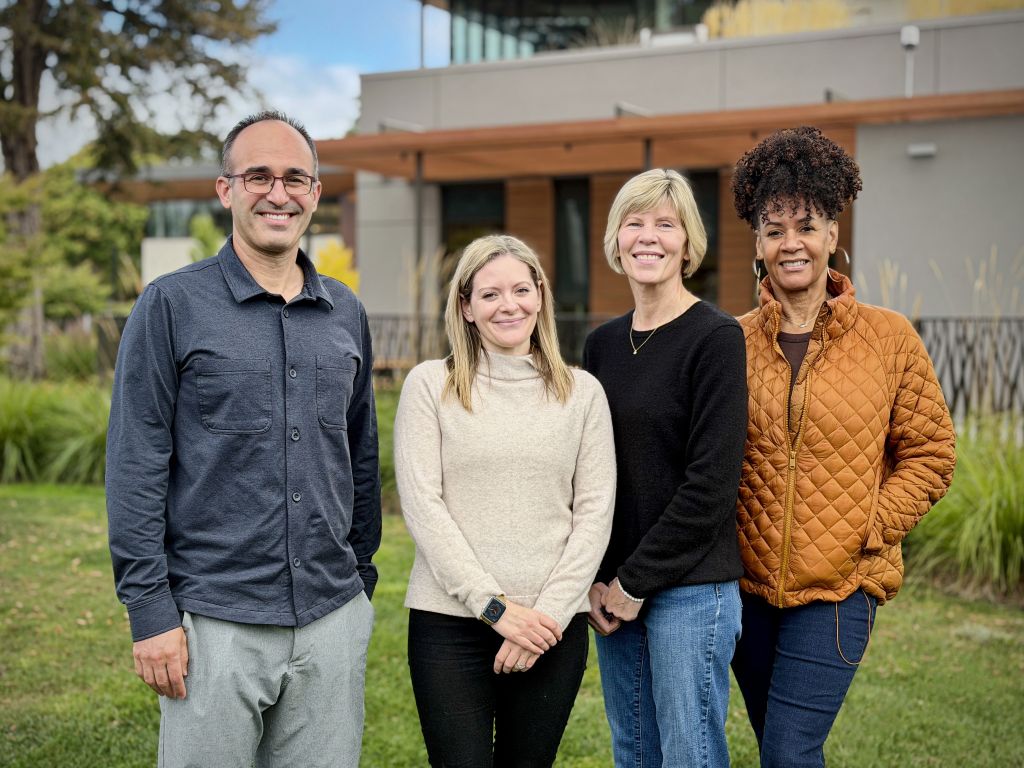650 Stories: Interview with Vivek Jain
Vivek Jain is an infectious diseases specialist physician focused on HIV, general infectious diseases, and internal medicine. He is the Director of the Infectious Diseases Clinic at San Francisco General Hospital, and also cares for HIV-positive patients at the Positive Health Practice. He conducts research on HIV antiretroviral therapy delivery in resource limited settings, working with collaborators in Uganda and Kenya on the shared global goal of developing and implementing systems of care to maximize treatment of HIV-positive persons in Sub-Saharan Africa.
How did you decide you wanted to be an Infectious Diseases Specialist?
I wanted to pursue medicine that would impact diseases that people have that are preventable, that are easily treatable, that we could eradicate and wipe out. It’s a field where you can have a huge impact. We’ve got great medicines for a whole variety of infectious disease conditions; we have great ways of diagnosing infections, so it’s a field where you can have a huge impact all around the world. There’s a lot of disparities and a lot of populations affected by infectious diseases and for me this was a field to make a big difference in those disparities.
In my clinical work it is a one-on-one thing. I meet with patients one-on-one every day and try to help them forward, but a lot of the research work we do is to study strategies, generate evidence and knowledge that doctors, clinical groups, health systems, and governments around the world can use to attack infectious diseases. That’s the dream for all the work that we do.
You’re both a doctor and a researcher. Can you talk about how the clinical work you do informs your research work and vice versa?
I could not be a researcher if I was not primarily a clinical doctor. I have a group of patients I take care of here in San Francisco in the HIV clinic. I work in the Infectious Diseases clinic and I work in the hospital. Every patient I see I learn something new. I hear a story, see how a disease has affected their particular life, and I keep that story with me. Seeing patients helps me frame what I think are going to be the highest impact questions. In the other direction, doing research helps me think in broad scale. In all the work we do, the dream is to make policy changes, and move the needle on big topics. I try to bring that systematic approach to the clinic. I want to primarily help my individual patients one by one, but I’m always thinking, how can we make this clinic better, how can we make the hospital better, how can we make the health system of San Francisco better? Each half is informing the other half.
Talk about what it’s like to do HIV care and research in San Francisco, particularly at San Francisco General which had the nation’s first AIDS ward.
San Francisco General Hospital is an amazing place to work and historically is one of the first epicenters of the epidemic in the 1980s. So when you work there you’re conscious of the history, and you also get to work with many of the original pioneers, doctors, nurses, clinicians, researchers who were involved in the initial response to the AIDS epidemic. So it’s an incredible place to train, and it’s an incredible place to work now. The landscape of HIV is so different now than it was in the original phase, but we have major challenges in the United States that we’re working really hard on. Tremendous progress has been made but we have a lot of work still to do.
What are some of the advancements and some of the challenges that still exist?
We have a lot of areas of progress and remaining challenges both in the United States and in Sub-Saharan Africa and around the world. So in the United States there’s been incredible progress in developing HIV medications. We used to have medications that were taken several times a day, higher doses, major side effects. Biotech and academic researchers made tremendous progress in simplifying medicines to the point now where we can have people taking one pill once a day with very low side effects. The result of that is our expectation for patients with HIV is that they’re going to live a full complete lifespan and achieve their full potential with medication. That being said, we’re still seeing a lot of new HIV infections occurring that are preventable and we need to do more to help people prevent. And we’re still trying to have our medications reach every person they need to reach. That’s an ongoing challenge. Sub-Saharan Africa is also a place where the medical global community has made tremendous progress. We had medications in the United States starting in the 1980s and it took a long time for those medications to be able to reach Sub-Saharan Africa at large scale. That really started happening in the 2000s, and now we’re at the point where we have 25-26 million people who are HIV-positive in Sub-Saharan Africa but more than half of them now are on HIV medication. So it’s been a tremendous scale up in medications, but we still have a lot of work to do to get every single person who has HIV access to the medicine in a reliable way.
Tell me about the work you’re doing in Uganda.
For many years the question in the field was ‘When should we start medications for a patient with HIV?’ We used to think that one should wait for some time and once the immune system was affected to a certain degree, that was the time to start medications. Now, through a lot of research in the field, we know that every patient should have access to medications immediately, at the earliest moment after diagnosis, and be able to start them and take them lifelong. Our group is one of many studying systems for how we scale up the delivery of medications. How can we help clinics to operate more efficiently and serve more people and serve them faster? We’re also asking: when you are able to scale up HIV medication throughout a community what are the broad population benefits that can flow from that? In particular we are studying whether when you have universal treatment in communities, does it help to shut down new infections? When one person gets treated and their HIV virus is suppressed, we know that the chance of transmitting to another person becomes exceedingly low. The main purpose of taking medicines is to benefit the person and as a secondary benefit we know that it helps stop the transmission of HIV. So our group is studying how does that happen in very large scale in populations when everyone has access to medications.
Do you feel like the stigma surrounding HIV has changed or is it still an issue?
Stigma has improved but it’s still a persistent issue. It’s something we need to keep working really hard on. That remains a barrier for people getting diagnosed,connecting to clinics, and getting on treatment. It’s something that every doctor in the HIV field thinks about a lot. How can we reduce stigma? We don’t want people to feel an ounce of it, especially because we know we have a lot to offer, and we want to offer it in a way that works for everybody.
What were some of the factors that lead to the rapid progress that’s already been made regarding HIV?
The progress in HIV has been the result of so many different groups of people working together on this emergency starting in the 1980s. Everyone in the healthcare field, but also advocates, demonstrators, protesters, people pushing the government to move faster, people pushing drug development faster, social justice advocates, people working to reduce stigma, people arguing for access to care, people educating patients and the public. All of these things were crucial in our country coming together in a response. I suppose one thing is when you’re a doctor you work in a particular time and place, and you have your chance to contribute to one piece of the longer story. So many of us were not there at the beginning, but we’re here now.
What’s something that most people might not know about this field?
Something that people might not know is that we expect people with HIV to live a full and complete healthy life with medications. From where we came at the beginning of the AIDS epidemic in the 1980s to where we are now, back then would have been an unthinkable degree of progress, and here we are now. That’s the message I’d want everyone to know.
Do you have a lot of hope going forward, maybe even about finding a cure?
I’m 100% optimistic. I think incredible progress is being made and you have to be an optimist to work on international medical topics. There’s a lot of challenges. But when you spend time in clinics in places that don’t have good resources you see people’s ingenuity and determination and you feel optimistic. It’s also what makes infectious diseases exciting. The challenge for the current generation of doctors is how do we lift up people who need these medical advances but are in places that have resource limitations. That is the exciting challenge, but it’s what gives a lot of energy to the work.
Where do you see progress happening now?
I see progress in every field, in so many branches of medicine. Tremendous advancements are happening in medicine, science, technology, communications. The challenge is figuring out how to spread the advances that are happening to everyone who needs them around the world. We’re at a point now where we can ensure a full and complete lifespan to everyone around the world but we have to deliver on that. I think that getting the best medical advances into the hands of every person around the world requires tremendous investments on the part of every country. Part of our job in medicine is to advocate for that, spread the message, marshal resources, and speak on political topics that influence how the system works. We aren’t politicians but medicine is politics.
I guess as an infectious disease specialist, the dream is that you’d never have another patient show up to be treated, that the disease would be gone.
That’s the ultimate dream.
This article is copyrighted by Raziel Ungar and may not be reproduced or copied without express written permission.













